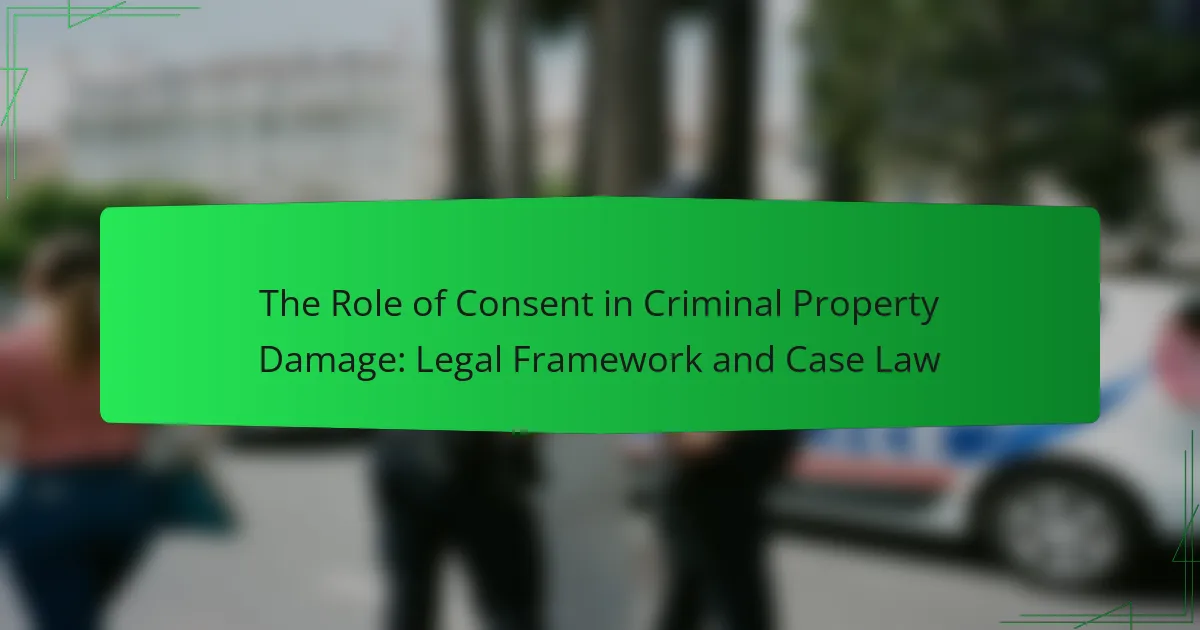Consent is a crucial legal concept that determines liability in cases of criminal property damage. When a property owner provides informed and voluntary consent for an action, it may absolve the individual from criminal responsibility for resulting damage. Legal precedents, such as *Mohr v. Williams* and *Rogers v. Board of Education*, highlight the importance of […]
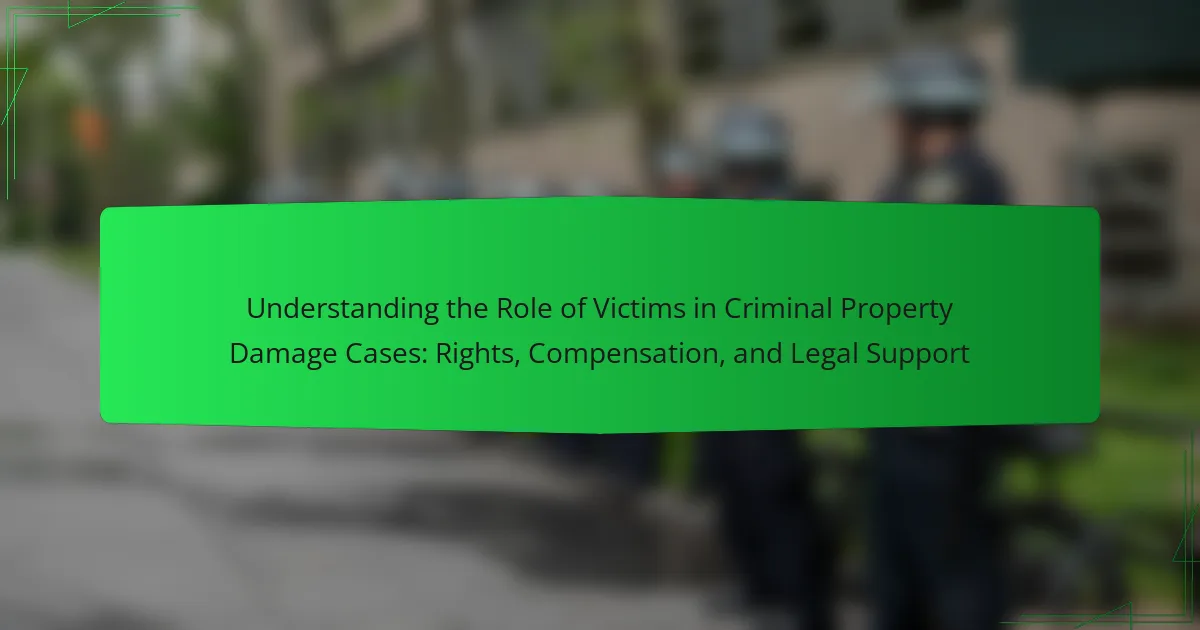
Understanding the Role of Victims in Criminal Property Damage Cases: Rights, Compensation, and Legal Support
Victims in criminal property damage cases are essential participants in the legal process, providing critical evidence such as photographs, witness statements, and repair estimates. They have the right to report crimes and their testimonies are often vital for investigations and court proceedings. Victims can pursue compensation through various avenues, including restitution, insurance claims, and civil […]
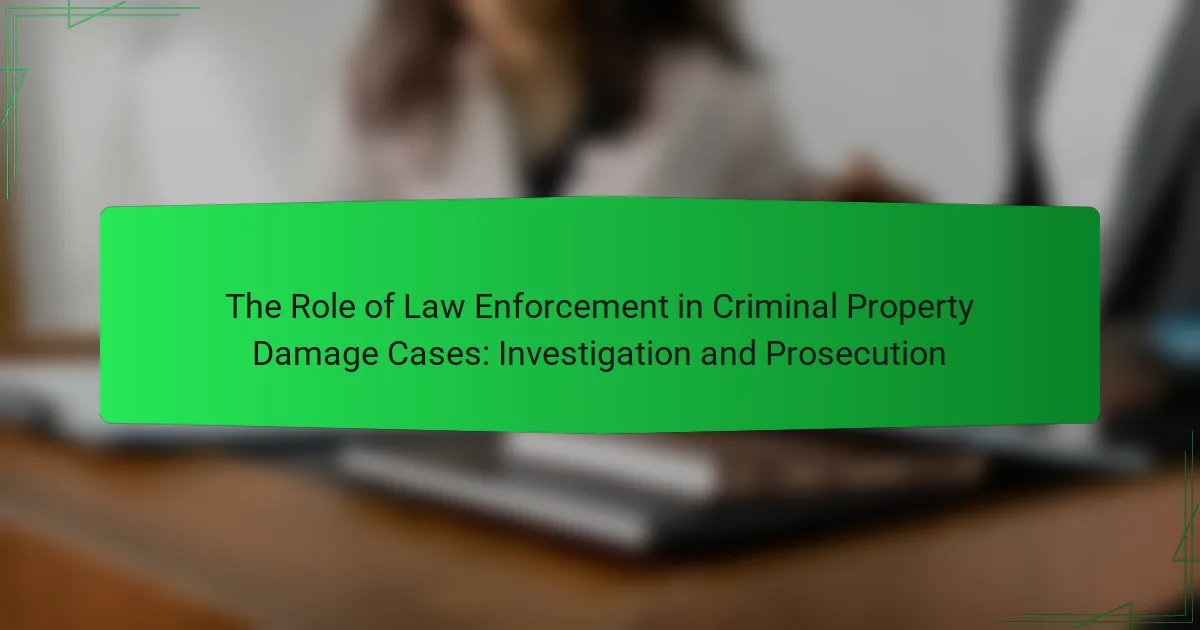
The Role of Law Enforcement in Criminal Property Damage Cases: Investigation and Prosecution
Law enforcement is essential in addressing criminal property damage cases, responsible for investigating incidents, gathering evidence, and interviewing witnesses. Their role includes documenting scenes, collecting physical evidence, and collaborating with prosecutors to build cases against suspects. Effective investigations often involve partnerships with local governments, insurance companies, and forensic teams, which can enhance evidence collection and […]
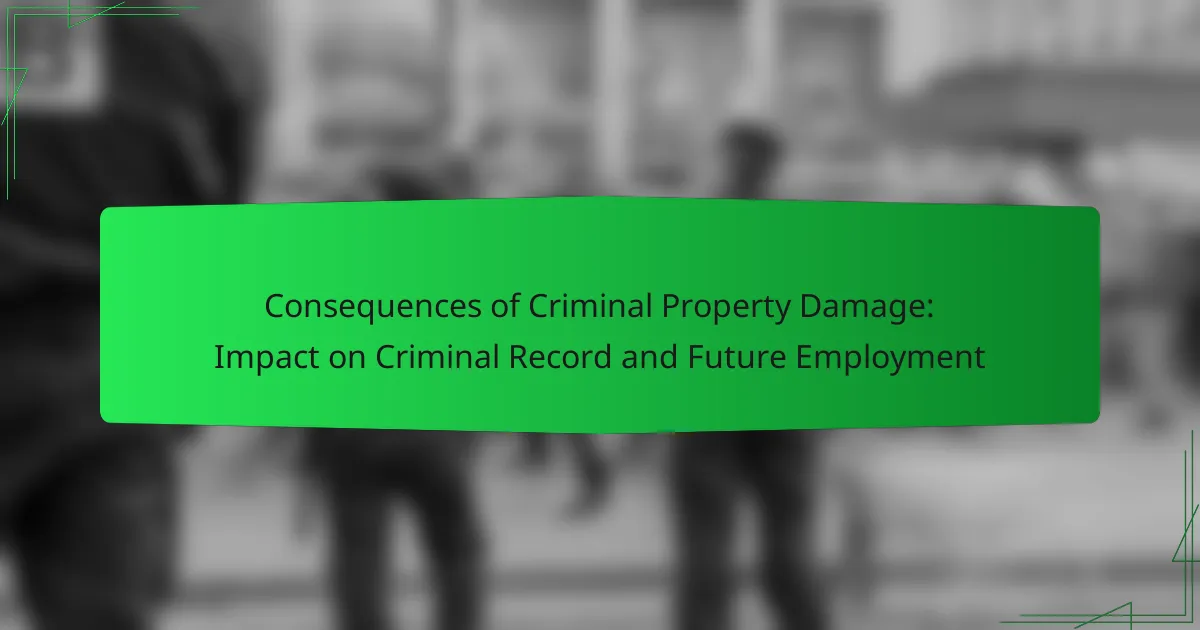
Consequences of Criminal Property Damage: Impact on Criminal Record and Future Employment
Criminal property damage refers to the intentional destruction of someone else’s property, which can result in significant legal consequences, including fines, imprisonment, and restitution costs. A criminal record stemming from such offenses can severely impact future employment opportunities, as many employers conduct background checks that may disqualify candidates with a history of criminal activity. The […]
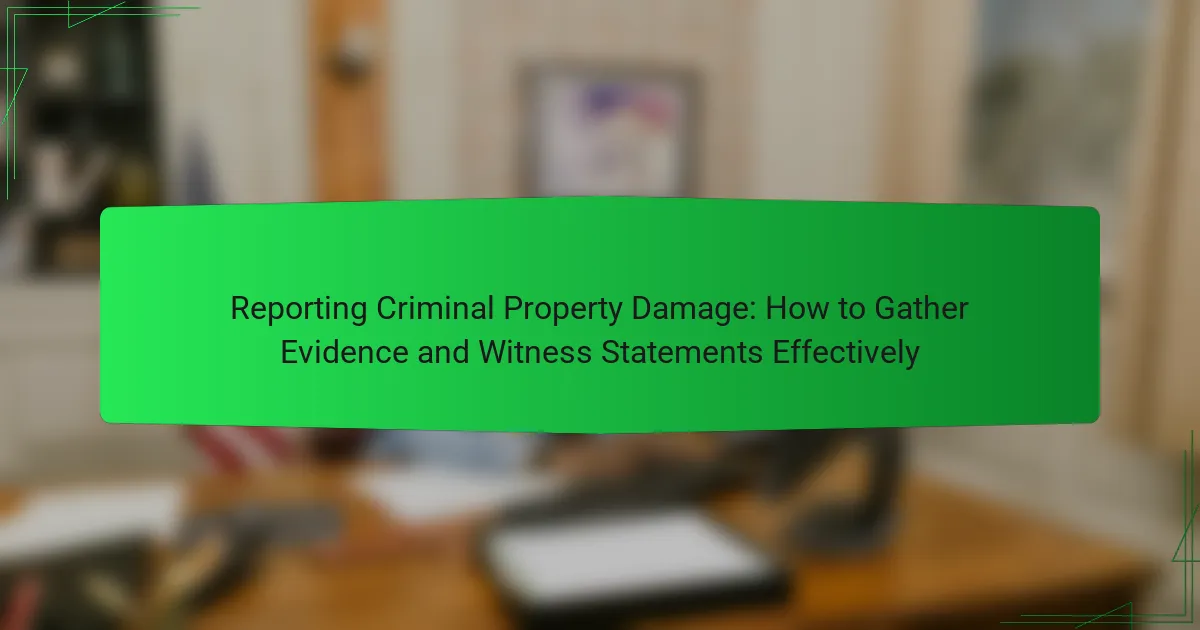
Reporting Criminal Property Damage: How to Gather Evidence and Witness Statements Effectively
Criminal property damage reporting involves documenting incidents of intentional property damage or destruction, which is essential for law enforcement investigations. Accurate reporting helps establish the facts of the incident, including details such as time, location, extent of damage, and potential suspects. The article outlines a systematic approach for gathering evidence, including securing the scene, documenting […]
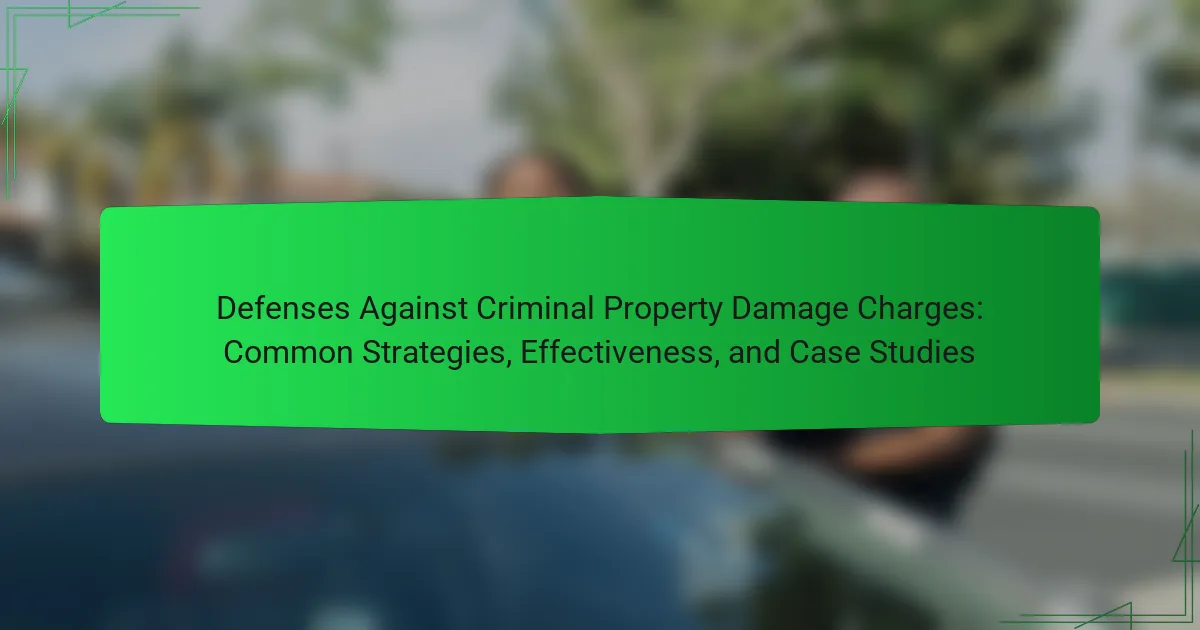
Defenses Against Criminal Property Damage Charges: Common Strategies, Effectiveness, and Case Studies
Defenses against criminal property damage charges encompass various strategies, including claims of lack of intent, consent from property owners, necessity to prevent greater harm, and establishing an alibi. The effectiveness of these defenses relies on the strength of evidence, credibility of witnesses, and the legal expertise of the defense attorney, as well as the context […]
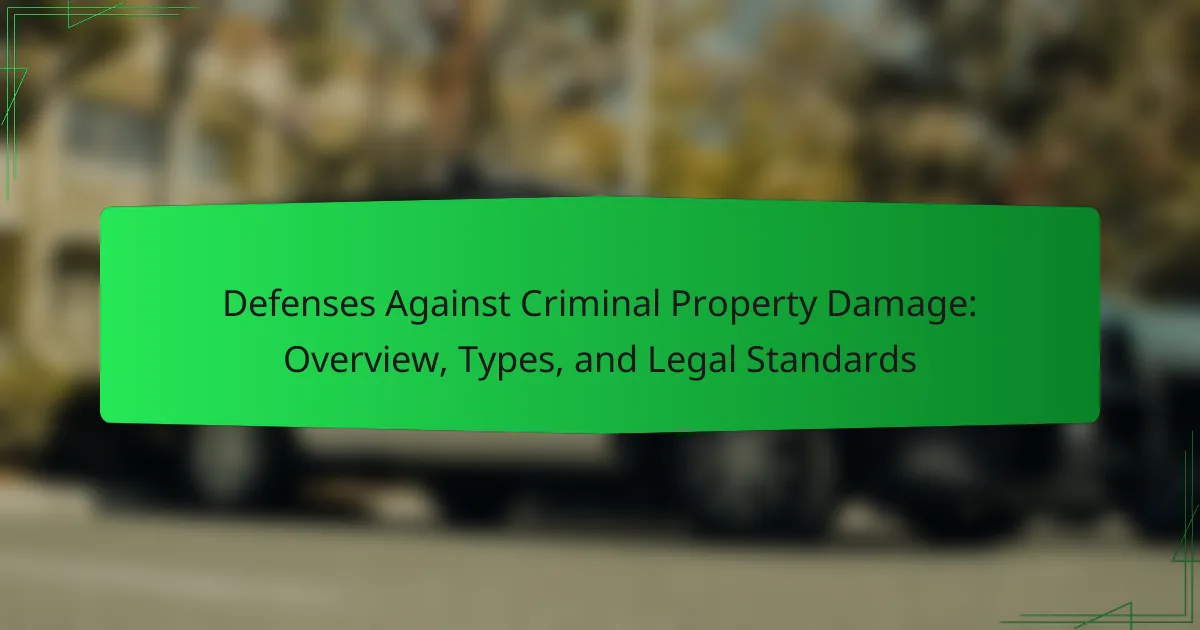
Defenses Against Criminal Property Damage: Overview, Types, and Legal Standards
Defenses against criminal property damage include necessity, consent, and self-defense, which provide legal justifications for actions taken to protect oneself or prevent greater harm. The necessity defense allows for property damage to avert more significant threats, while consent negates liability when the property owner agrees to the damage. Self-defense applies when damage is necessary to […]
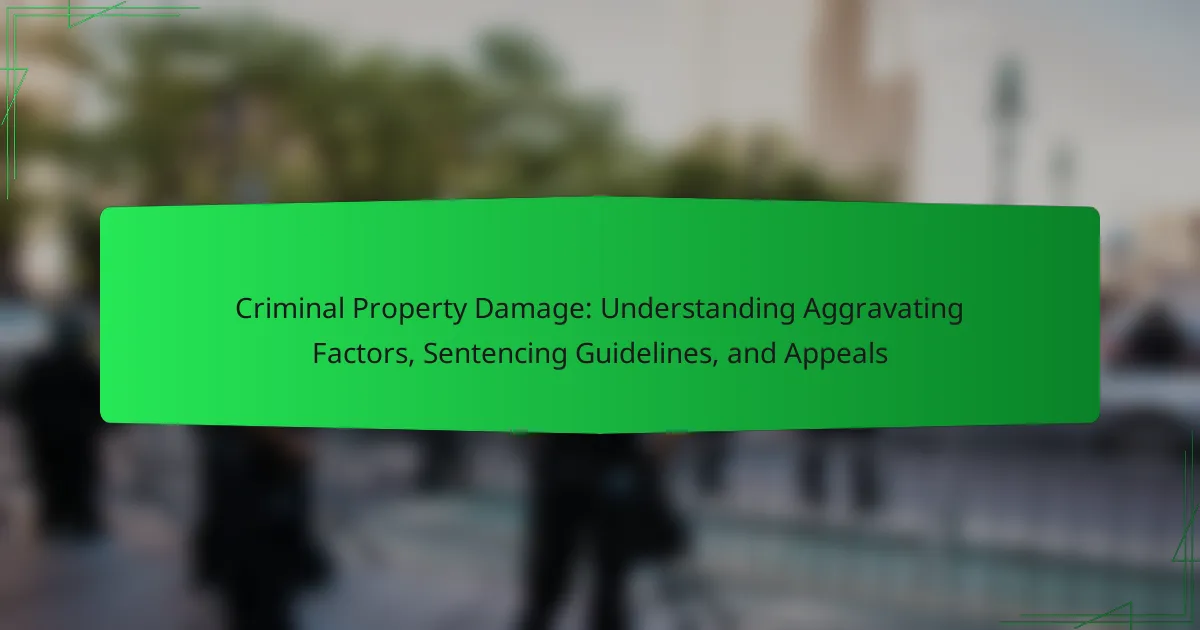
Criminal Property Damage: Understanding Aggravating Factors, Sentencing Guidelines, and Appeals
Criminal property damage is defined as the intentional destruction or defacement of another person’s property, encompassing acts such as vandalism, graffiti, and breaking windows. The legal consequences of this offense vary based on the extent of damage and the value of the property, with potential charges ranging from misdemeanors to felonies. Aggravating factors, such as […]
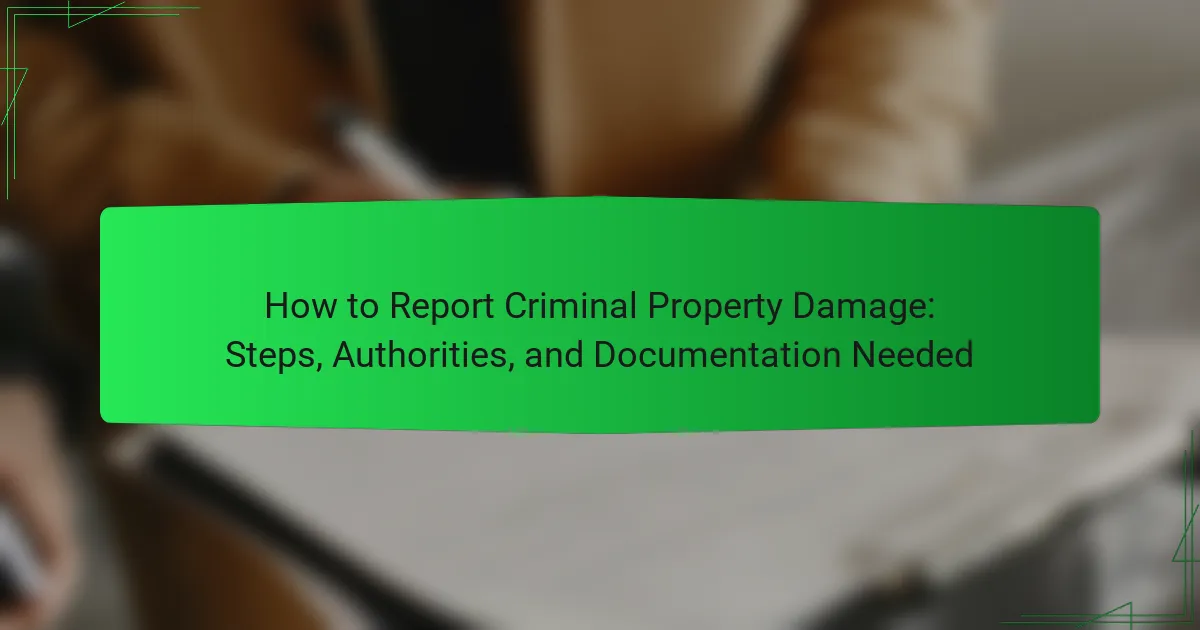
How to Report Criminal Property Damage: Steps, Authorities, and Documentation Needed
Criminal property damage is the intentional destruction or defacement of another person’s property, encompassing acts such as vandalism, graffiti, and breaking windows. This article outlines the steps necessary for reporting such incidents to local law enforcement authorities, emphasizing the importance of documentation for investigation purposes. Key elements of the reporting process include providing a detailed […]
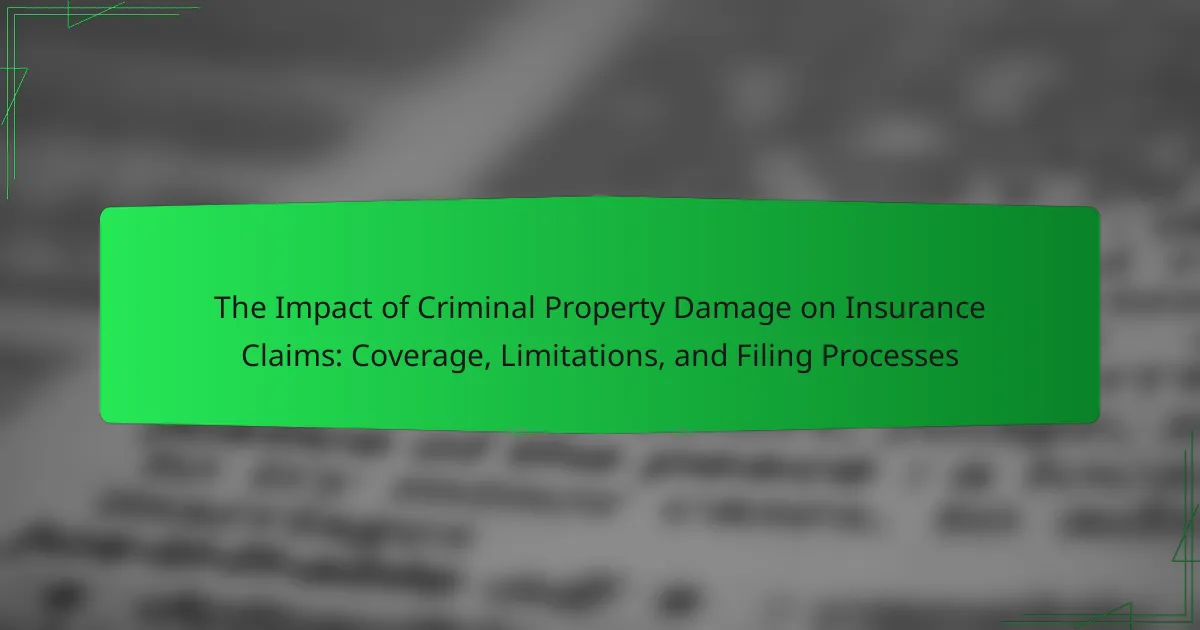
The Impact of Criminal Property Damage on Insurance Claims: Coverage, Limitations, and Filing Processes
Criminal property damage refers to harm inflicted on property through illegal acts, significantly influencing insurance claims. Insurers often require documentation, such as police reports, to validate claims related to criminal acts, which can impact approval timelines. Timely reporting of the crime is essential, as delays may result in claim denials. Additionally, deductibles may reduce the […]
